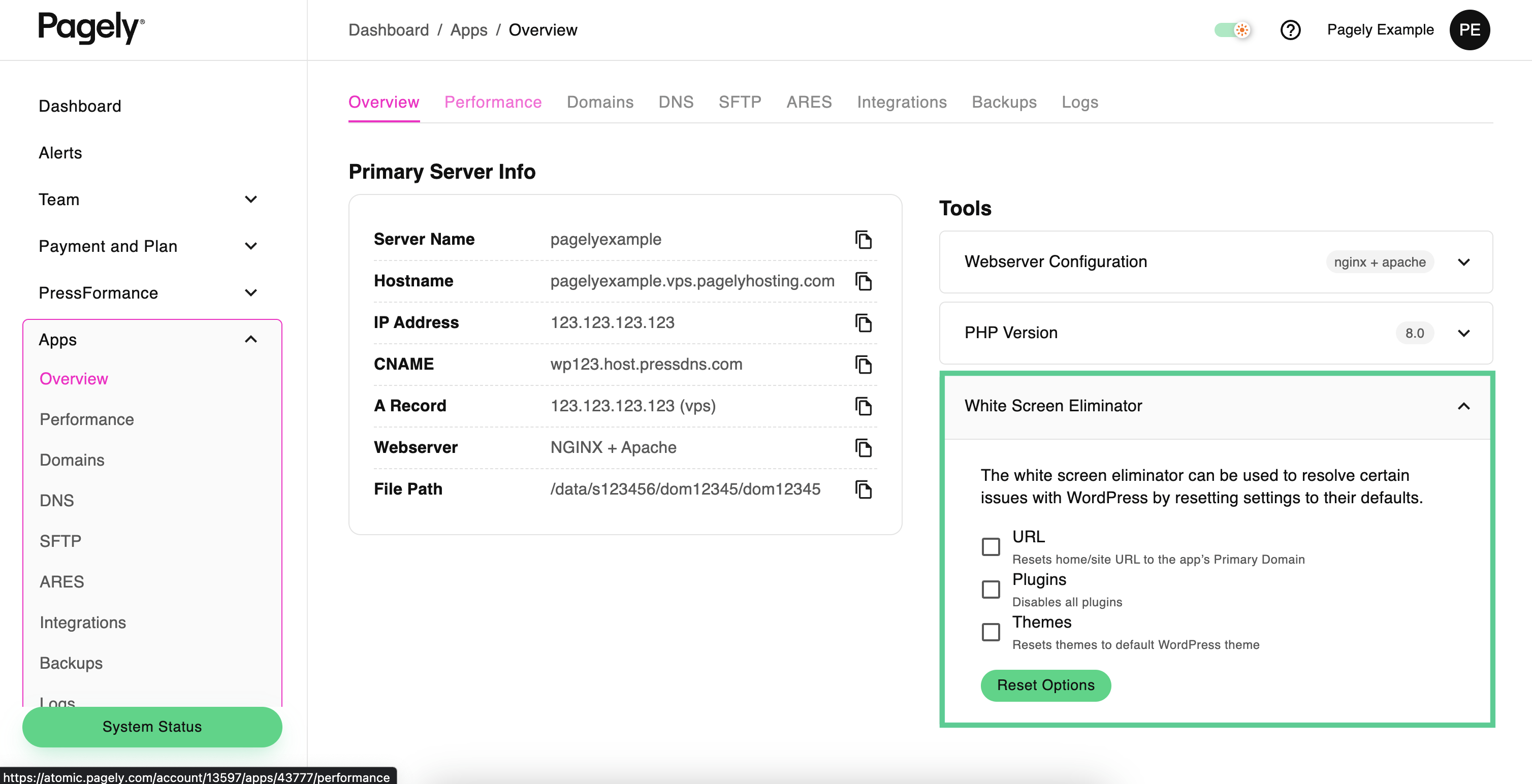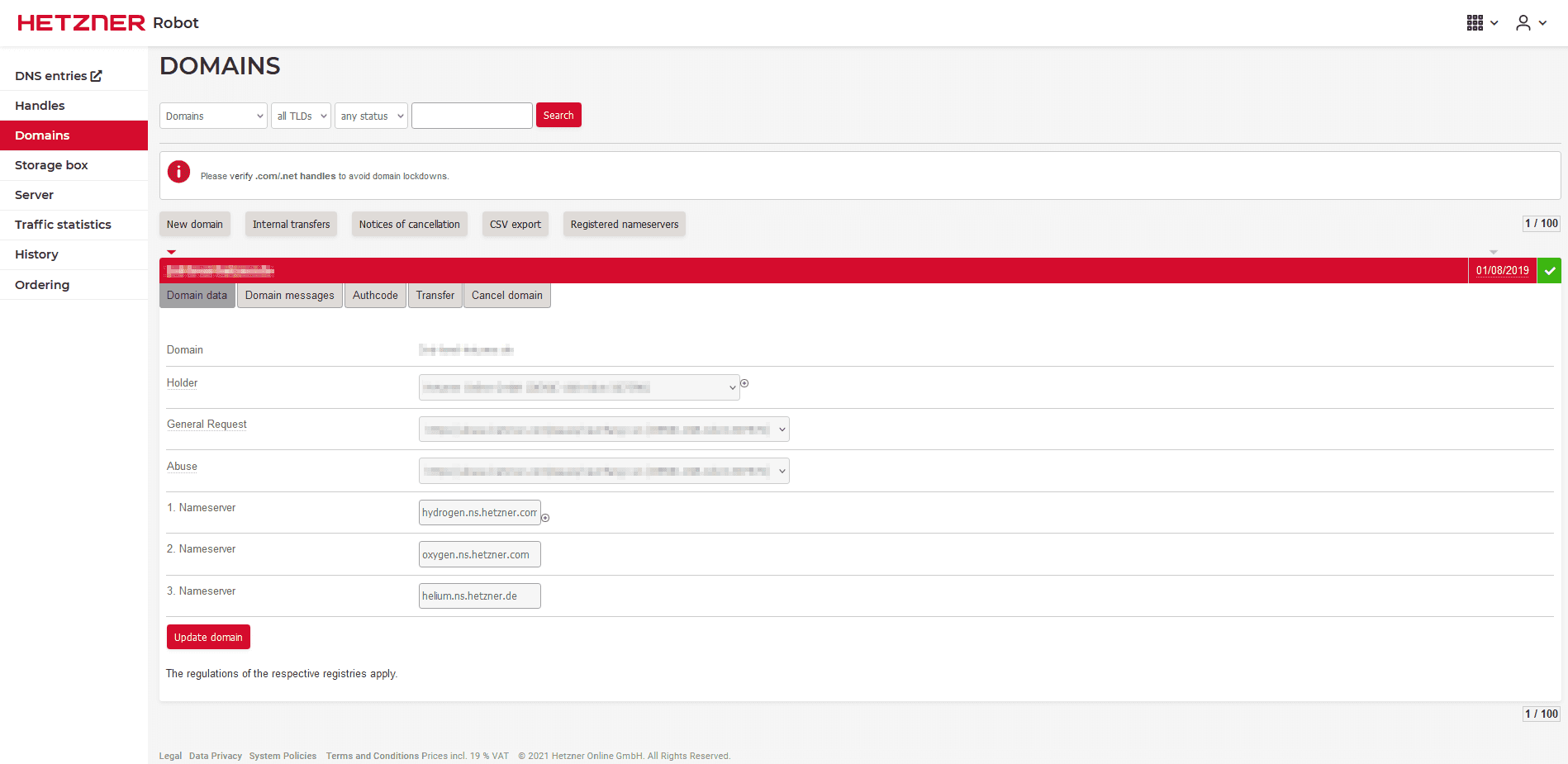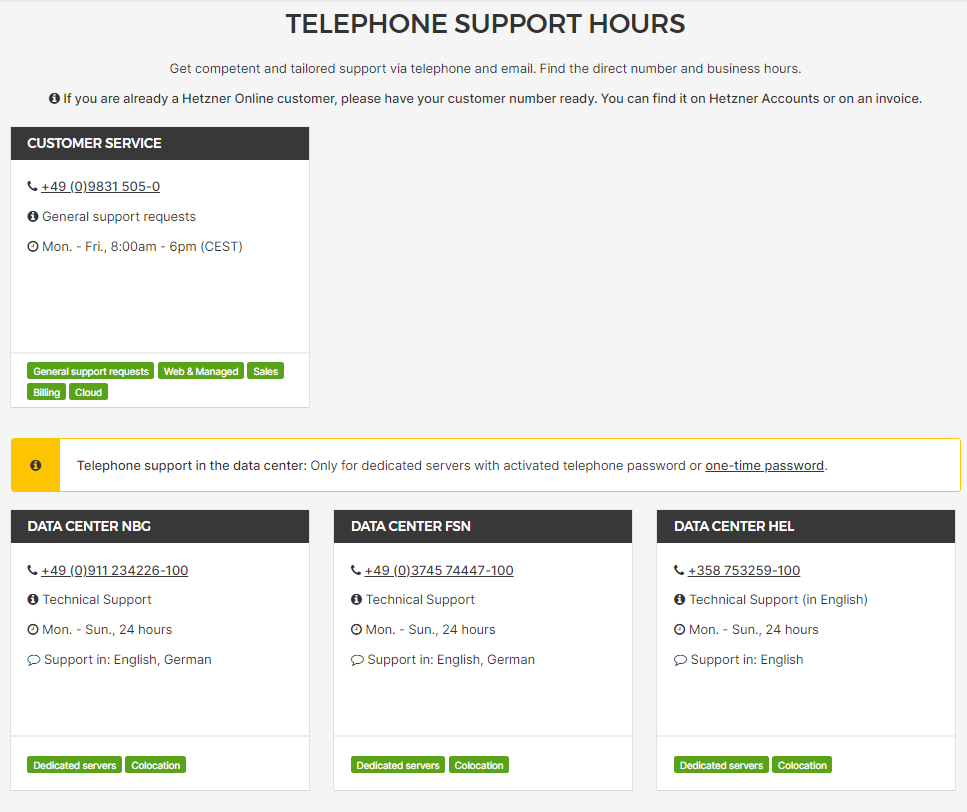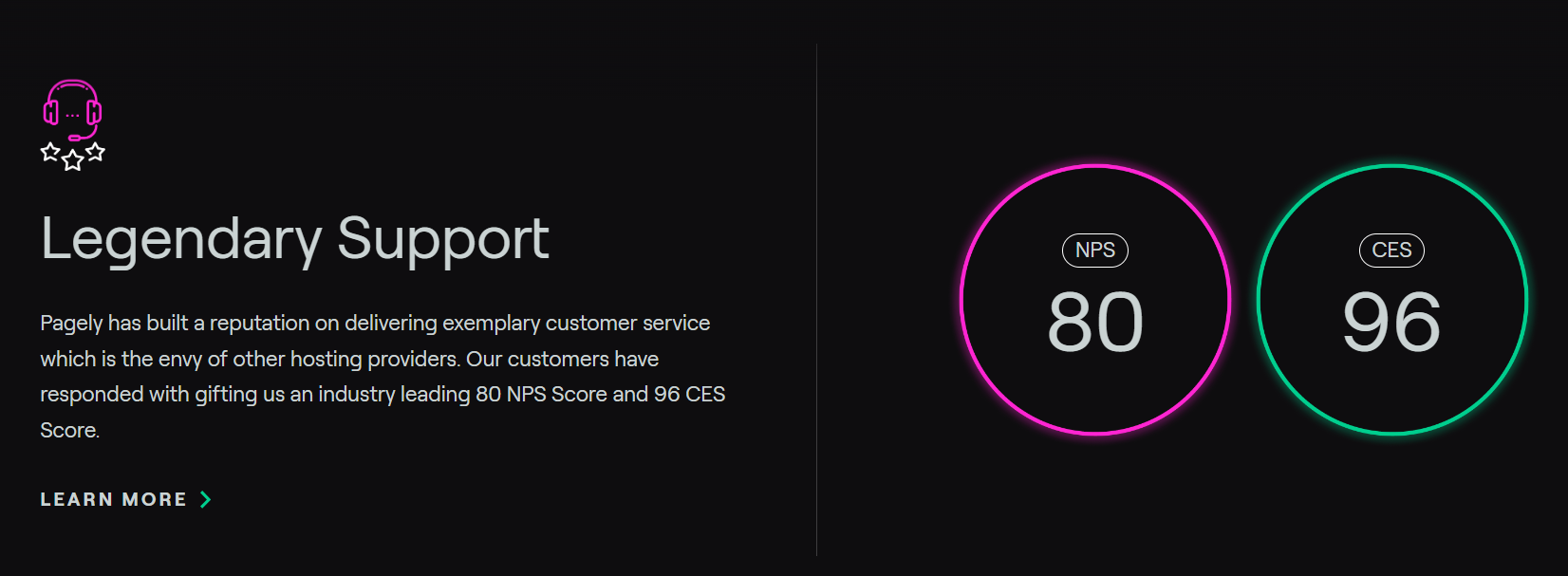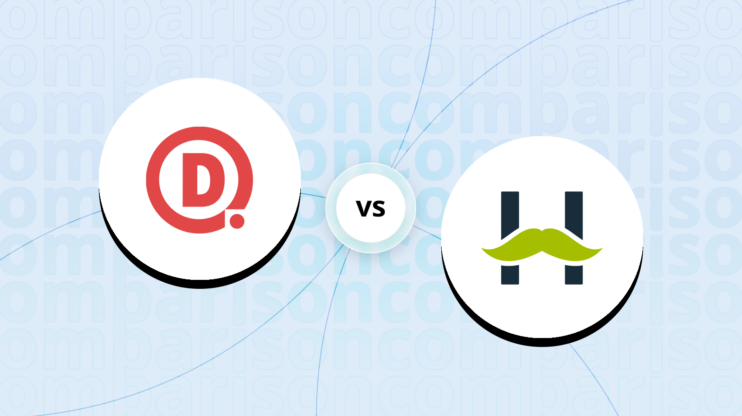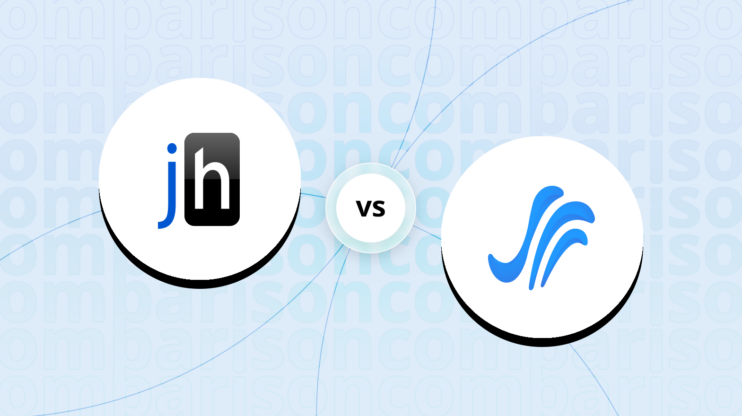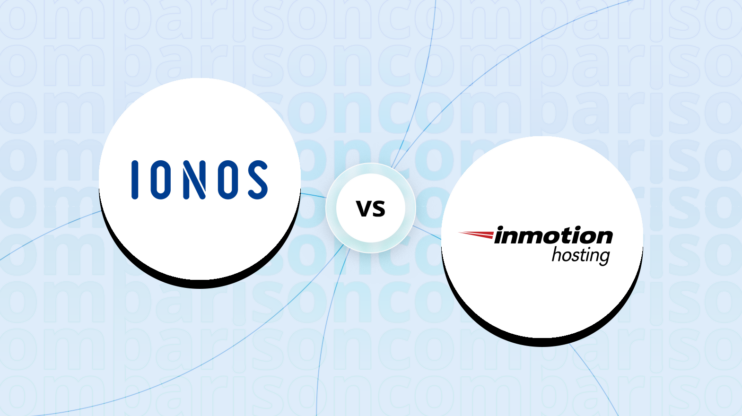Hetzner vs Pagely: Final verdict
Looking over Hetzner vs. Pagely, it’s clear why both hosts are so popular. They have both hosted millions of
websites that run on WordPress for decades, building up a loyal customer base.
-
Pagely (Overall grade: 8.1)
is an excellent choice for businesses seeking premium WordPress hosting backed by AWS infrastructure. It offers exceptional performance, advanced security features, and exemplary customer support, which justifies its higher price point. Pagely’s comprehensive managed services, tailored for high-demand environments, make it ideal for enterprises needing reliability and scalability. However, its lack of entry-level plans and core email hosting may be a drawback for some users.
Hetzner (Overall grade: 7.9)
provides versatile hosting options at a competitive price, making it attractive for budget-conscious users. It offers a variety of hosting types including shared and cloud hosting, and supplies essential security measures and flexible scaling options. Despite being slightly less refined in user interface and support availability compared to Pagely, Hetzner remains a valuable option for small to mid-sized projects due to its affordability and robust feature set.
 Overall grade:7.9 |
 Overall grade:8.1 |
|
|---|---|---|
| Uptime and Availability | 9.0 | 9.5 |
| Hosting Performance | 8.3 | 8.8 |
| Hosting Security | 8.8 | 9.2 |
| Price | 7.9 | 7.4 |
| Hosting Features | 7.5 | 4.6 |
| Ease Of Setup | 8.0 | 8.2 |
| User Management | 7.8 | 8.4 |
| Customer Support | 6.3 | 8.9 |
| User feedback | 4.6/5 | 4.9/5 |
Hosting types offered
Both platforms provide a variety of hosting types, each designed to meet the different needs of users.
 |
 |
|
|---|---|---|
| Shared hosting | ||
| Cloud hosting | ||
| WordPress hosting | ||
| Ecommerce hosting | ||
| VPS hosting | ||
| Dedicated hosting |
Although both offer a variety of hosting plans tailored to different needs, in
certain cases, one platform may prove to be more suitable.
Detailed comparison
Uptime and availability
Evaluates the average uptime statistics, uptime guarantee and overall availability of the hosting
provider
Score Components:
- Uptime percentage (30%): evaluates the uptime statistics in given period of time
- Uptime guarantee (20%): Assesses if the platform offers an uptime guarantee and
whether the actual uptime matches the promised guarantee. - General performance (25%): Evaluates how fast is the average response time and overall
it’s stability. - Responsiveness (10%): Adaptability to different devices and screen sizes.
- Availability (25%): Reflects the total downtime and number of outages.
 9.0
9.0
 9.5
9.5
Winner Pagely: Offering an exceptional uptime guarantee and high availability architecture, Pagely stands as the preferred choice.
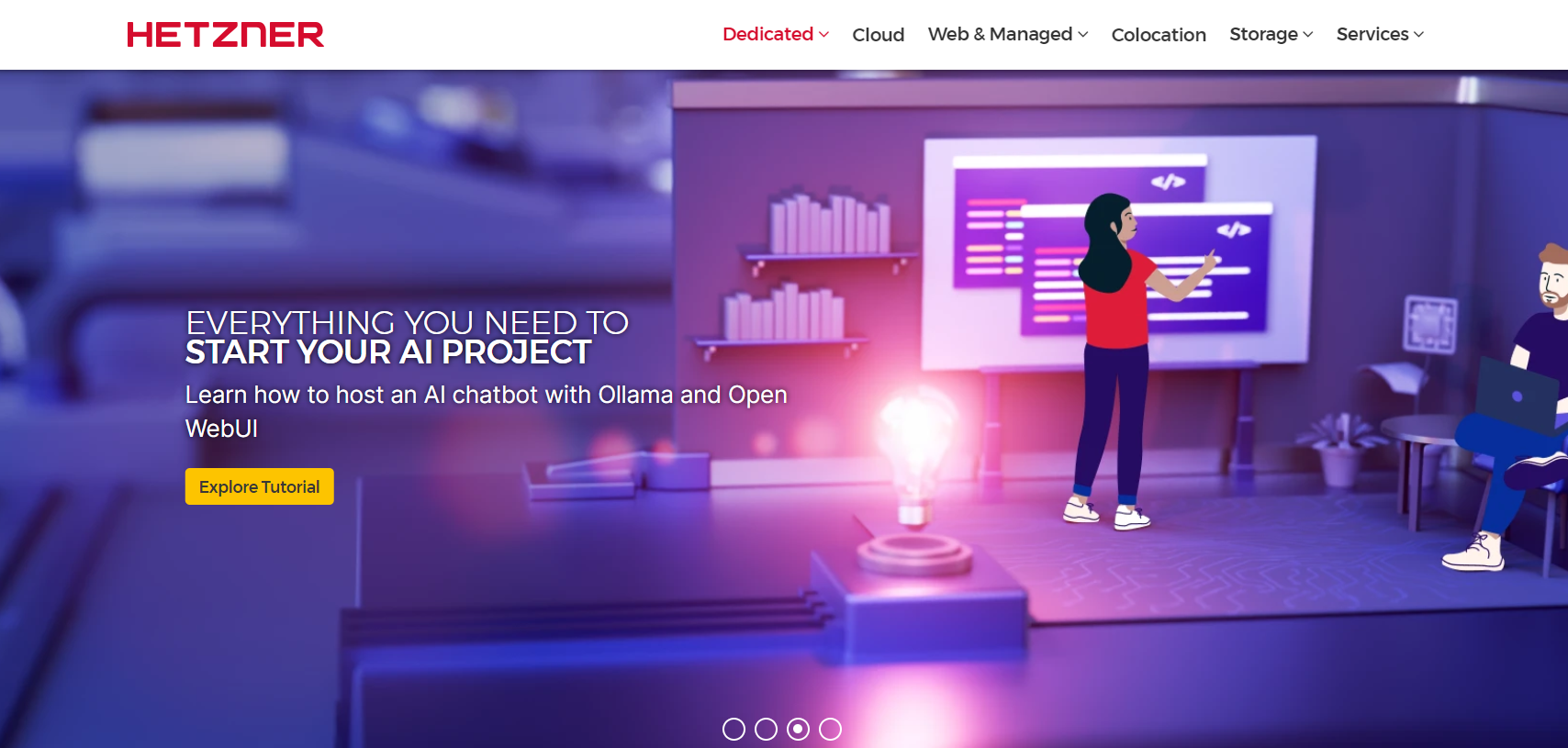
Hetzner Online provides a 99.9% uptime guarantee with data centers in Germany, Finland, and the USA. They utilize Juniper backbone technology to ensure network redundancy, and offer DDoS protection free of charge. Their 24/7 monitoring ensures swift response to any issues, making them a reliable choice for hosting needs.

Pagely offers a 99.99% uptime guarantee and features 14 global data centers. Their high availability architecture is designed for scalability, security, and reliability. With disaster recovery, load balancing, and 24/7 monitoring, Pagely provides a comprehensive solution for high demand hosting environments.
Which one has better hosting performance?
Score Components:
- Hosting speed (30%): This includes SSD quality, Load times, PageSpeed score ranges,
additional information on website speed, built-in plugins for performance enhancement, available caching
methods, and CPU/RAM options - CDN (20%): Considers whether CDN is available or not, whether it’s free or paid, and
the quality of the CDN service - Available data centers (30%): Evaluates the number of data centers and their locations
globally. - Scalibility (20%): Looks at whether elastic scaling is available, the process required
to scale (manual upgrade vs. automatic scaling), the presence of dedicated servers, and the costs
associated with scaling.
 8.3
8.3
 8.8
8.8
🏆 Winner
Pagely: Highly configurable and managed WordPress hosting with top-tier support.
When comparing Hetzner and Pagely, it’s clear that both offer solid hosting options, but they serve different markets. Hetzner has multiple data centers across Germany, Finland, and the USA, providing broad coverage with a minimum network availability of 99.9%. Its offerings include NVMe SSDs, unlimited traffic for web hosting, and advanced network features like a redundant network with Juniper backbone technology. Pagely, on the other hand, focuses specifically on high-performance WordPress hosting with superior caching and CDN technology, running on Amazon AWS. The performance packages come with flexible configuration options, decoupled database resources, and managed DevOps support, ensuring efficiency and rapid load times.
Website Speed
Hetzner utilizes NVMe SSD disk space, which offers high read and write speeds, and provides daily backups with a 14-day retention period. This ensures quick data retrieval and website stability. Pagely, however, optimizes website speed with SSD storage and advanced network security. The superior caching and CDN technology lead to faster load times and enhanced user experiences. Given their different approaches, Pagely edges out slightly in website speed optimization thanks to its performance-driven infrastructure tailored for WordPress.
Scalability
Regarding scalability, Hetzner offers flexible invoicing for additional disk space and traffic overusage, along with options for managed and cloud servers. However, the specifics about automatic scaling are unclear. Pagely provides a highly scalable architecture with plans allowing for tailored CPU, RAM, and SSD storage configurations, especially in its Scale and High Availability packages. The process of scaling in Pagely seems more seamless, with high flexibility and dedicated resources, but comes at a premium cost. Both have strengths, but Pagely offers more built-in upscale options, albeit at a higher price point.
Which one has better security features?
and regulatory requirements
Score Components:
- Technical security measures (40%): This includes encryption, firewalls, DDoS
protection, secure configurations, server monitoring, access control and availability of security addons
(e.g Sitelock security). - Operational security measures (30%): Encompasses data privacy, backups and data
redundancy. - Compliance and certifications (20%): Adherence to legal and regulatory requirements
(e.g., GDPR, HIPAA) and possession of certifications (e.g., ISO 27001, SOC 2). - Business and reliability (10%): Factors in the provider’s reputation, uptime
guarantees, and customer support.
 8.8
8.8
 9.2
9.2
Winner Pagely: Pagely offers a more comprehensive suite of security features tailored for WordPress environments and regulatory compliance.
Technical security measures:
Hetzner provides robust technical security with DDoS protection, SSL certificates (Symantec Basic and Let’s Encrypt), and support for PHP versions 5, 7, and 8. Additionally, Hetzner includes PHP extensions like APCu, ImageMagick, IonCube Loader, and more. Pagely, on the other hand, uses AWS Shield Standard for DDoS protection and also supports Let’s Encrypt and custom SSL certificates. It offers long-term support for PHP versions 7.4 or newer. Pagely’s PressARMOR™ further secures WordPress environments by patching known vulnerabilities. Pagely edges out with its intuitive solution, especially for WordPress.
Operational security measures:
Hetzner’s operational security includes secure connections through SSL encryption for administration, mail, FTP, and SSH access. Mail security features such as DKIM, SPF, and anti-spam techniques, along with ClamAV virus scanning are also offered. Hetzner’s real-time system integrity checks and automated defense mechanisms against dictionary-based brute force attacks fortify its servers. Pagely offers 24/7 uptime monitoring, resource isolation, two-factor authentication (2FA), brute force protection, and a web application firewall. While Hetzner offers a wide range of secure access methods, Pagely’s use of AWS infrastructure and advanced firewall coverage position it marginally ahead in operational security.
Compliance and certifications:
Hetzner operates under GDPR regulations with ISO 27001 certification for its data centers. It offers a Data Processing Agreement (DPA) as per Article 28 of GDPR. Pagely not only complies with GDPR but also boasts SOC 2 Type I & II and PCI-DSS SAQ-A certifications. With a broader spectrum of compliance and certifications across different standards, Pagely demonstrates a higher assurance level for regulatory adherence.
 |
 |
|
|---|---|---|
SSL certificate |
Symantec Basic, Let’s Encrypt |
Let’s Encrypt, Custom SSL |
Additional security features |
DDoS protection, virus scanner, anti-spam techniques |
AWS Shield, 2FA, web application firewall, malware scanning |
PHP versions |
PHP 5, PHP 7, PHP 8 |
PHP 7.4 or newer |
GDPR compliance |
Yes |
Yes |
HIPAA compliance |
Not specified |
Not specified |
PCI compliance |
Not specified |
Yes, PCI-DSS SAQ-A |
Hosting features
Score Components:
- Domains (20%): Assesses the availability of a free domain, domain purchase options, and
pricing - Email (15%): Considers if the provider offers full email hosting, or is reselling
third-party service, and if the email is only transactional or not - Website builder (15%): Checks if website builder is available, and it’s user
friendliness and overall the level of customization allowed. - Staging environment (20%): Determines if a staging environment is available, allowing
for testing changes before going live. - FTP & SFTP accounts (10%): Evaluates if and how easily users can access FTP and
SFTP accounts - Git and SSH access (20%): Assess whether Git is integrated into the hosting service and
if SSH access is provided
 7.5
7.5
 4.6
4.6
🏆 Winner
Hetzner: A robust hosting solution offering versatile features and flexible pricing.
When comparing hosting providers Hetzner and Pagely, both bring impressive features to the table, though the user needs differ. Hetzner offers a well-rounded set of features including support for PHP scripts, CMS platforms like WordPress, Joomla, and Typo3, as well as the capability to handle webshop solutions such as Shopware. Its pricing model is flexible and includes various tiers based on disk space, allowing users to scale as their needs grow. Hetzner’s policy includes a free phone and email support, daily backups, and a comprehensive control interface konsoleH, which enhances usability for both beginners and advanced users. Additionally, Hetzner provides essential security measures such as SSL encryption and DDoS protection, without a minimum contract period which offers more flexibility to its users.
Pagely, on the other hand, boasts high availability with a 99.99% uptime SLA by leveraging AWS Cloud and robust dedicated AWS hardware, making it ideal for businesses requiring maximum reliability. It features advanced network security, managed WordPress upgrades, and uses superior caching technology for fast performance. Pagely also includes developer-friendly tools like SSH, GIT, and WP-CLI, which are great for tech-savvy users who prefer customization. Their plans start at a higher price point, but they include managed DevOps support and flexible configurations. Despite not offering free domains like Hetzner, Pagely’s comprehensive backup solutions and responsive expert support make it a strong candidate for demanding enterprise environments.
 |
 |
|
|---|---|---|
Free domain |
Yes |
No |
Free SSL |
Yes |
Yes |
Email hosting |
Yes |
No |
Website builder |
No |
No |
Staging environment |
No |
Yes |
FTP & SFTP accounts |
Yes |
Yes |
Git and SSH access |
Yes |
Yes |
Free backup |
Yes |
Yes |
Money back guarantee |
No |
No |
a location.
As a result in rare cases the features mentioned here can differ from the ones you see on their websites.
Both providers support a range of users from beginners to experts with user-friendly website builders and WordPress staging areas. However, in terms of developer tools, both Hetzner and Pagely offer robust options including SSH access, support for multiple programming languages, and Git for version control, thus appealing to developers looking for advanced capabilities.
Email services:
Hetzner offers comprehensive email hosting services, including large mailboxes, email forwarding, and secure SMTP for transactional emails. Additionally, users can synchronize their email accounts with multiple protocols like Exchange Active Sync. In contrast, Pagely focuses on its strong hosting capabilities and does not include built-in email hosting. However, users can manage email through third-party integrations with popular services like Google Workspace. While Hetzner provides more integrated email solutions, Pagely’s advanced hosting features might be more appealing to users whose primary concern is hosting performance rather than email.
Price
Score Components:
- Plan value (40%): What each pricing tier offers.
- Transparency and clarity (30%): Clearness of pricing structures.
- Flexibility of plans (20%): Range of options to suit different budgets.
- Hidden costs (10%): Additional expenses not included in the plan.
 7.9
7.9
 7.4
7.4
🏆 Winner Hetzner: A budget-friendly yet feature-rich hosting provider.
Evaluating the pricing of plans among various hosting providers can be complex due to their differing pricing and renewal strategies. Additionally, certain plans require annual commitments, which adds to the difficulty of making comparisons. The prices listed are based on monthly commitments; plans requiring annual commitments are indicated. Additionally, although some providers offer identical plans for WordPress and shared hosting, we have created separate tables for each to enhance clarity.
Hetzner offers a variety of competitively priced hosting plans with rich features, while Pagely caters mostly to high-end users with excellent support and advanced features. Hetzner’s plans, starting as low as €2.09 per month, include excellent storage and traffic allowances, making it a cost-effective option. On the other hand, Pagely’s mandates a higher budget, with their entry-level plan starting at $199 per month, offering features like decoupled database resources and managed DevOps support. Both providers have unique features that cater to different customer needs, but Hetzner stands out for its affordability and extensive feature set.

|

|
|---|---|
|
Level 1€2.09
1 website, 10 GB NVMe SSD, unlimited traffic, free phone/email support, 1 domain included Value for price:8.5
|
Developer 1$199
1 website, 30 GB SSD, no traffic cap, managed support, decoupled database resources Value for price:7.0
|
|
Level 4€5.39
1 website, 50 GB NVMe SSD, unlimited traffic, free phone/email support, 1 domain included Value for price:8.8
|
Developer 2$299
1 website, 30 GB SSD, no traffic cap, managed support, decoupled database resources Value for price:7.2
|
|
Level 9€10.90
1 website, 100 GB NVMe SSD, unlimited traffic, free phone/email support, 1 domain included Value for price:8.9
|
Performance Lite$375
1 website, 50 GB SSD, no traffic cap, managed DevOps support, flexible configuration Value for price:7.5
|
|
Level 19€21.90
1 website, 300 GB NVMe SSD, unlimited traffic, free phone/email support, 1 domain included Value for price:9.0
|
Performance$499
1 website, 50 GB SSD, no traffic cap, managed DevOps support, flexible configuration Value for price:7.6
|
|
N/A
|
Performance+$999
1 website, 50 GB SSD, no traffic cap, managed DevOps support, flexible configuration Value for price:7.8
|
|
N/A
|
Scale$2500
1 website, custom SSD, no traffic cap, dedicated database resources, managed DevOps support Value for price:8.0
|

|

|
|---|---|
|
Level 1€2.09
1 website, 10 GB NVMe SSD, unlimited traffic, free phone/email support, 1 domain included Value for price:8.5
|
N/A
|
|
Level 4€5.39
1 website, 50 GB NVMe SSD, unlimited traffic, free phone/email support, 1 domain included Value for price:8.8
|
N/A
|
|
Level 9€10.90
1 website, 100 GB NVMe SSD, unlimited traffic, free phone/email support, 1 domain included Value for price:8.9
|
N/A
|
|
Level 19€21.90
1 website, 300 GB NVMe SSD, unlimited traffic, free phone/email support, 1 domain included Value for price:9.0
|
N/A
|

|

|
||||||||||||||||||||||||||||||||||||||||||||||||||
|---|---|---|---|---|---|---|---|---|---|---|---|---|---|---|---|---|---|---|---|---|---|---|---|---|---|---|---|---|---|---|---|---|---|---|---|---|---|---|---|---|---|---|---|---|---|---|---|---|---|---|---|
|
CX11€4.51
1 website, 20 GB Disk Space, 20 TB traffic, 2 GB RAM, 1 vCPU Value for price:8.7
|
N/A
|
||||||||||||||||||||||||||||||||||||||||||||||||||
|
CPX11€5.18
1 website, 40 GB Disk Space, 20 TB traffic, 2 GB RAM, 2 vCPU Value for price:8.8
|
N/A
|
||||||||||||||||||||||||||||||||||||||||||||||||||
|
CX21€6.37
1 website, 40 GB Disk Space, 20 TB traffic, 4 GB RAM, 2 vCPU Value for price:8.9
|
N/A
|
||||||||||||||||||||||||||||||||||||||||||||||||||
|
CPX21€8.98
1 website, 80 GB Disk Space, 20 TB traffic, 4 GB RAM, 3 vCPU Value for price:9.0
|
N/A
|
||||||||||||||||||||||||||||||||||||||||||||||||||
|
CX31€29.99
1 website, 240 GB Disk Space, 20 TB traffic, 8 GB RAM, 2 vCPU Value for price:8.5
|
N/A
|
||||||||||||||||||||||||||||||||||||||||||||||||||
|
CPX31€16.18
1 website, 160 GB Disk Space, 20 TB traffic, 8 GB RAM, 4 vCPU Value for price:8.7
|
N/A
|
||||||||||||||||||||||||||||||||||||||||||||||||||
|
CX41€20.71
1 website, 160 GB Disk Space, 20 TB traffic, 16 GB RAM, 4 vCPU Value for price:8.8
|
N/A
|
||||||||||||||||||||||||||||||||||||||||||||||||||
|
CPX41€29.99
1 Hetzner vs Pagely: Ease of setupEvaluates the ease of setting up and migrating websites on the hosting
platform. Score Components:
 8.0
8.0
 8.2
8.2
🏆 Winner Pagely: Easy-to-use interface and comprehensive support cater to both novice and experienced users. For Hetzner, the konsoleH administration interface provides a methodical and somewhat traditional panel for managing accounts. It enables users to set up domains, email addresses, and websites fairly efficiently. The interface may require a learning curve for those who are not very tech-savvy, but comprehensive documentation is available to facilitate the process. Configurations such as domain registration and account management are straightforward but may seem slightly complex due to the variety of options.
Pagely offers a more tailored experience with its managed WordPress hosting. The admin panel is designed specifically for WordPress, which can greatly simplify the setup and management processes. The user interface is intuitive, making it accessible for non-technical users while still providing the necessary tools for more advanced users. This custom solution offers an enhanced user experience, particularly for those working within the WordPress ecosystem.
Hetzner offers detailed guides and tutorials for migrating domains, websites, and email manually. These resources are comprehensive but may require a good understanding of the systems involved. On the other hand, Pagely provides a more seamless experience in this regard. They offer both automated and manual migration services for WordPress sites, making it easier for users to switch without a hitch. This service is often part of their package, reducing the need for additional fees.
User managementAssesses the platforms’ capabilities in managing user roles, permissions, and
accessibility. Score Components:
 7.8
7.8
 8.4
8.4
🏆 Winner Pagely: Excellence in user management and accessibility. When comparing the capabilities of Hetzner and Pagely in managing user roles, permissions, and accessibility, Pagely holds an advantage with its well-defined roles and granular permission levels. Pagely’s user management includes distinct roles like Account Owner, Super-Admin, Sub-Admin, Tech, Billing, App-Only, and App-Only-Minimal, each with specific permissions tailored to particular responsibilities. Hetzner offers comprehensive user management that includes creating user groups, setting storage quotas, and managing SSH access. However, it lacks the precise variety of roles and granular controls found in Pagely’s system. Both Hetzner and Pagely provide intuitive user interfaces for managing users. Hetzner’s interface includes clear navigation through profile pictures, allowing users to easily access and modify user settings, quotas, and group configurations. Pagely, on the other hand, integrates its user management tools within a streamlined dashboard that simplifies the process of adding and managing user roles and permissions. Pagely’s dashboard is particularly user-friendly for administrators, providing straightforward access to all necessary tools for user management. Access control measures are crucial for maintaining security and efficiency as user numbers grow. Hetzner’s approach involves user activity monitoring through a dedicated section where administrators can filter activities and inspect logs. Pagely offers strong access control by enforcing two-factor authentication and enabling different levels of SSH and SFTP access depending on the user’s role. Pagely’s ability to scale efficiently with a diverse set of user roles provides a significant advantage in managing large-scale user bases effectively. Hetzner user roles table:
Pagely user roles table:
Customer supportEvaluates the quality, availability, and scope of the customer support offered by the
hosting provider. Score Components:
 6.3
6.3
 8.9
8.9
🏆 Winner Pagely: Pagely offers consistent and highly-rated customer support that includes 24/7 availability and rapid issue resolution.
Hetzner and Pagely both offer comprehensive support options, but there are key differences. Hetzner provides support through email, a ticketing system, and phone support. Their phone support is limited to business hours on weekdays, and their response times via tickets are generally quick. However, the absence of live chat and occasional slow or unhelpful responses, particularly in resolving account issues, may be a concern.
Pagely excels in customer satisfaction with 24/7 support via tickets and live chat. They also offer dedicated Slack channels for enterprise clients and phone support on select plans. Their tierless support team ensures issues are resolved without escalation, boasting a high response rate and customer satisfaction. The inclusion of an onboarding process and high customer satisfaction metrics further highlight Pagely’s superior support infrastructure. Hetzner vs Pagely: User feedbackOverall, users find the hosting provider to be highly cost-effective, with robust performance and reliable server infrastructure. Many appreciate the competitive pricing, ease of use, and the ability to scale their projects effortlessly. While the customer support is praised for being helpful and responsive, some users feel it could benefit from slight improvements. Additionally, there are minor suggestions for feature enhancements and a more refined user interface, though these do not detract significantly from overall satisfaction. Users highly appreciate this hosting provider for its exceptional reliability and top-notch customer support, often comparing it to having an on-call DevOps team. The platform is praised for its speed, security, and a suite of features designed specifically for WordPress hosting. Many find the management tools intuitive and effective, though some express a desire for improvements in specific areas like the Atomic dashboard and multi-user access. The main criticism revolves around the high cost, which is noted as a barrier for smaller operations, but many users agree the premium price is justified by the service’s quality and reliability. Hetzner vs Pagely: FAQWhich platform is better suited for hosting WordPress websites? Pagely is better suited for hosting WordPress websites due to its managed support, advanced security features, and Amazon infrastructure. It provides exceptional performance and reliability specifically tailored for high-demand WordPress environments. Hetzner does not offer specialized WordPress hosting, making Pagely the superior option in this category. Which hosting service offers better security features? Pagely offers more comprehensive security features, leveraging AWS Shield Standard for DDoS protection, PressARMOR™ to secure WordPress environments, and support for advanced SSL configurations. Hetzner provides robust technical security with SSL certificates and DDoS protection but lacks the specialized WordPress security measures found in Pagely. Therefore, Pagely edges out with its intuitive and specialized security solutions. What are the major differences in pricing and value between hetzner and pagely? Hetzner is more budget-friendly, offering competitively priced plans starting as low as €2.09 per month, making it accessible for small to mid-sized projects. Pagely targets high-end users with plans starting at $199 per month, offering advanced features and superior support for enterprise needs. While Hetzner’s plans offer excellent value for money, Pagely justifies its higher cost with premium performance, security, and support. Which hosting service offers more scalability options for growing websites? Pagely offers a highly scalable architecture with plans that allow for tailored CPU, RAM, and SSD storage configurations, particularly in its Scale and High Availability packages. Hetzner provides flexible invoicing for additional resources and various server options but lacks the seamless automatic scaling features of Pagely. Pagely’s built-in upscale options are more comprehensive, although they come at a higher price point. How do the providers handle email hosting and what features are included? Hetzner offers comprehensive email hosting services, including large mailboxes, email forwarding, and secure SMTP for transactional emails, with support for Exchange Active Sync. Pagely does not provide built-in email hosting but allows for third-party integrations like Google Workspace. While Hetzner offers integrated email solutions, Pagely focuses on advanced hosting features, making Hetzner the better option for email services. The making of this blog We followed a clear, step-by-step process to write and research this article.
Compare other builders
|
